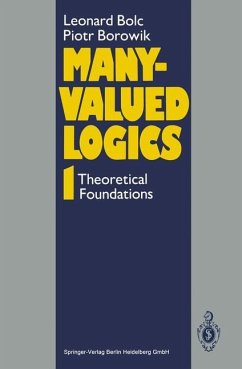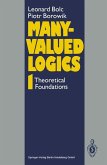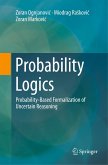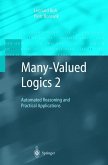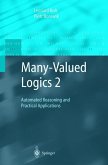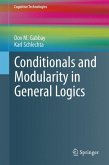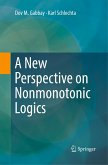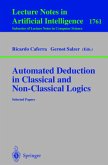Many-valued logics were developed as an attempt to handlephilosophical doubts about the "law of excluded middle" inclassical logic. The first many-valued formal systems weredeveloped by J. Lukasiewicz in Poland and E.Post in theU.S.A. in the 1920s, and since then the field has expandeddramatically as the applicability of the systems to otherphilosophical and semantic problems was recognized.Intuitionisticlogic, for example, arose from deep problemsin the foundations of mathematics. Fuzzy logics,approximation logics, and probability logics all addressquestions that classical logic alone cannot answer. Allthese interpretations of many-valued calculi motivatespecific formal systems thatallow detailed mathematicaltreatment.In this volume, the authors are concerned with finite-valuedlogics, and especially with three-valued logical calculi.Matrix constructions, axiomatizations of propositional andpredicate calculi, syntax, semantic structures, andmethodology are discussed. Separate chapters deal withintuitionistic logic, fuzzy logics, approximation logics,and probability logics. These systems all find applicationin practice, in automatic inference processes, which havebeen decisive for the intensive development of these logics.This volume acquaints the reader with theoreticalfundamentals of many-valued logics. It is intended to be thefirst of a two-volume work. The second volume will deal withpractical applications and methods of automated reasoningusing many-valued logics.
Hinweis: Dieser Artikel kann nur an eine deutsche Lieferadresse ausgeliefert werden.
Hinweis: Dieser Artikel kann nur an eine deutsche Lieferadresse ausgeliefert werden.

